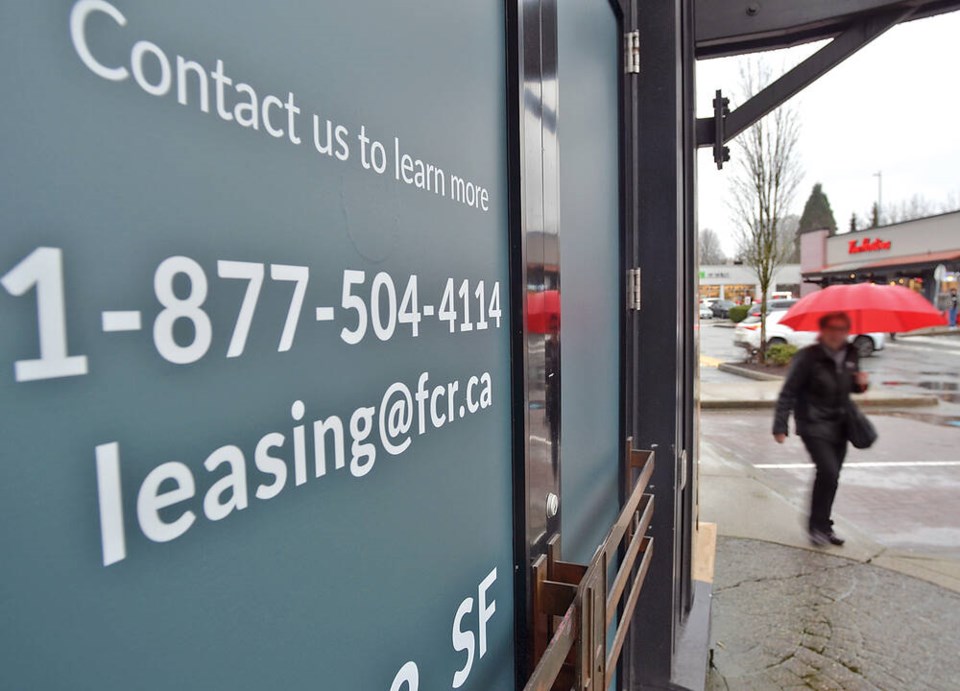Property assessments for commercial and light-industrial land on the North Shore remained steady in 2023, but business anxiety is through the roof.
According to data from BC Assessment, values for commercial land were down by 1.1 per cent, on average, in North Vancouver in 2023, and down 0.4 per cent in West Vancouver.
Light-industrial property assessments, meanwhile, were up by 1.8 per cent in the City of North Vancouver and down 0.1 per cent in the District of North Vancouver, the data show.
The levelling off of growth, however, follows years or sharp increases in sales prices for commercial and industrial land, said Ross Forman, commercial Realtor with Forman Pilkington.
Five years ago, warehouse space was selling for around $350 per square foot. Today, it’s closer to $750 or $800.
“We’re used to seeing 15 to 20 per cent increases all the time,” he said.
Rises in property assessments can lead to higher municipal tax bills, depending on how councils structure their budgets, but they are almost certainly passed on as rent increases to business owners leasing the land.
“There are some landlords that are helping out and not increasing the rate so much. Others are just kind of getting what they get on the rates or whatever the market is, which is high,” Foreman said. “It just gets tougher and tougher for the tenants. You see more tenants going out of business.”
Even if rapid growth in commercial land prices is currently stalled, the rates are still too high for small business, said Patrick Stafford-Smith, North Vancouver Chamber CEO.
“I still believe the cost of commercial/industrial space for businesses on the North Shore is prohibitive and the resulting in taxation, especially for those with the triple-net leases, is putting people out of business,” he said. “I’ve heard more cases this past year of people telling me of their tax increases that have resulted in them looking at their business and having to shut down or move somewhere else.”
One chamber member recently moved his business to the U.S. after his 2023 property tax bill accounted for 80 per cent of his operating cost, Stafford-Smith cited.
North Shore industrial land lacking
Forman said commercial and industrial sales slowed in the second half of 2023 after interest rates hit their peak before picking up again in the late fall.
One of the major factors pushing light-industrial land up has been a lack of supply, which has only gotten tighter, Forman said. In recent years, the North Shore lost light-industrial properties, some of which were rezoned for residential towers on Hunter Street, while other lots were absorbed into the port when the G3 grain export terminal was built.
Forman said he doesn’t see industrial property prices coming down anytime soon, not unless something happens in supply of available land.
“You’ve either got to build a bunch of it or a bunch people have to go out of business,” he said. “And they’re not building any new stuff right now.”
The assessments come as local municipalities are beginning work on their 2024 budgets and tax rates and the same inflationary pressures hitting the bottom line for businesses are also impacting municipal spending. Forman said if local councils want to help ease the pain on local businesses, they can lower the mill rates that get levied on commercial and industrial land.
“It gets more expensive for the tenants and the owners to run their business and they don’t get any benefit from it,” he said.
Stafford-Smith, however, said the problem lies in the way the province assesses commercial and industrial properties, which he said needs an overhaul. Small businesses operating on particularly expensive properties, which they do not have any control over, are the most at risk, he said.
“I think the provincial government has been passing the buck on the property assessment process, and they’ve passed it down to municipalities to make difficult decisions,” he said. “We need to make sure that we’ve got a viable business community and I’m seeing very viable businesses been put out of business simply because of the property tax, and I don’t believe that’s the municipalities’ fault.”



